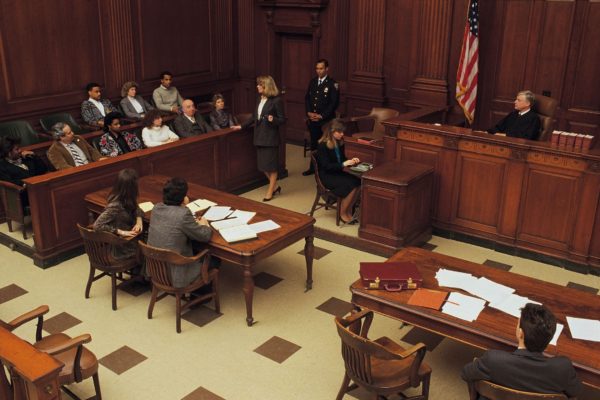[column parallax_bg=”disabled” parallax_bg_inertia=”-0.2″ extended=”false” extended_padding=”true” background_color=”” background_image=”” background_repeat=”” background_position=”” background_size=”auto” background_attachment=”” hide_bg_lowres=”false” background_video=”” vertical_padding_top=”0″ vertical_padding_bottom=”50″ more_link=”” more_text=”” left_border=”transparent” class=”” id=”” title=”” title_type=”single” animation=”none” width=”1/1″ last=”true”]
[column_1 width=”1/1″ last=”true” title=”” title_type=”single” animation=”none” implicit=”true”]
Contractors’ Liens:
What Every Homeowner Should Know
by Lisa Godfrey
If you are a homeowner who has recently purchased a newly constructed home or has had recent work done through your own contractor, you may be faced with a lien against your property. If a contractor or subcontractor is not paid, under North Carolina law he or she has the right to file a lien at the Clerk of Court’s office. In order to protect your property from such a lien, there are certain basic facts every homeowner should know.
First, only persons who deal directly with the owner of the property (usually general contractors) can file liens directly against the land. If a contractor deals with the owner of a property and is not timely paid, the contractor has 120 days from the last date he or she worked on the property to file the lien. Filing a lien on the 121st day is too late.
A lien must be filed in the county in which the property is located. There is no requirement that the lien be served on the property owner but, in most instances, this is done.
In order to keep the lien in place, the contractor must file suit against the property owner within 180 days of the last date the contractor worked on the property or the lien will be discharged by the passage of time. These time periods are very strictly construed.
Other ways to discharge a lien are to take out a bond for 1 1/4 times the amount of the lien and post it with the Court. You may also post the amount of the lien with the Clerk of Court as a cash bond to discharge the lien.
If you receive a lien from a contractor with whom you have dealt, it is important to remember that, if a settlement is reached, the contractor must agree to file a discharge of the lien before receiving payment. This is to avoid any future problems with the public record.
If suit is filed by the contractor to enforce his or her lien, you should consult with an attorney right away. You should not attempt to handle the lawsuit on your own.
Subcontractors can also file liens. Their liens are in the form of a “Notice of Claim of Lien”. This type of lien is a notice to the property owner that the subcontractor has not been paid by the general contractor. If you receive a “Notice of Claim of Lien”, you must retain sufficient funds from the contractor’s monies to pay the subcontractor. If you pay the general contractor after receiving the Notice of Claim of Lien, the subcontractor can acquire lien rights on your land.
In the event you receive a Notice of Claim of Lien from a subcontractor, it is wise to consult an attorney and to stop all payments to the general contractor until the lien is resolved. You should seek legal advice as to the best way to avoid any further liability in such case.
Sometimes owners of newly constructed houses that are purchased from a developer or general contractor receive Claims of Lien from subcontractors who worked on the property prior to closing. These can still be valid Claims of Lien, even though the property has changed hands. This is because the subcontractors have 120 days from their last date of furnishing on the property to file the lien. In a case like this, you have paid in full for the property, yet you may have an outstanding lien for work that was done during the construction of your home.
If you find yourself in such a situation, you should immediately contact your title insurance company. In almost every real estate closing, title insurance is obtained to cover both the owner and the lender. If a lien from an unpaid contractor appears, your title insurance company may be liable to pay off the lien to protect your interest in the property. In any event, at any time a lien is received, it is wise to seek legal advice on how best to handle the matter.
Lisa Godfrey is an attorney in the Charlotte office of Knox Law Center. The firm’s website is http://knoxlawcenter.com/. She can be reached at 704-315-2363 or 866-704-9059 (Toll free) or [email protected].
[/column_1]
[/column]
[column parallax_bg=”fixed” parallax_bg_inertia=”-0.2″ extended=”true” extended_padding=”true” background_color=”” background_image=”http://knoxlawcenter.com/wp-content/uploads/scales-of-justice-extra-white.jpg” background_repeat=”” background_position=”” background_size=”auto” background_attachment=”” hide_bg_lowres=”false” background_video=”” vertical_padding_top=”30″ vertical_padding_bottom=”70″ more_link=”” more_text=”” left_border=”transparent” class=”” id=”REQUEST-CONSULTATION” title=”” title_type=”single” animation=”none” width=”1/1″ last=”true”]
[text_divider type=”single”]
How Can We Serve You?
[/text_divider]
[column_1 width=”1/1″ last=”true” title=”” title_type=”single” animation=”none” implicit=”true”]
[push h=”-20″]
Fields with * are required.
[push h=”20″]
[/column_1]
[column_1 width=”1/1″ last=”true” title=”” title_type=”single” animation=”none” implicit=”true”]
[/column_1]
[/column]






